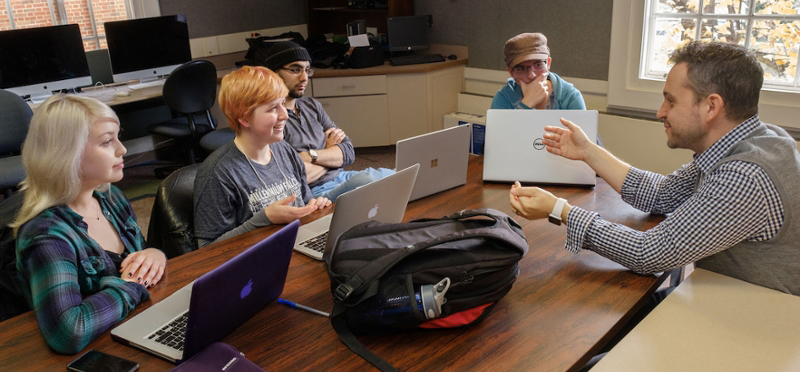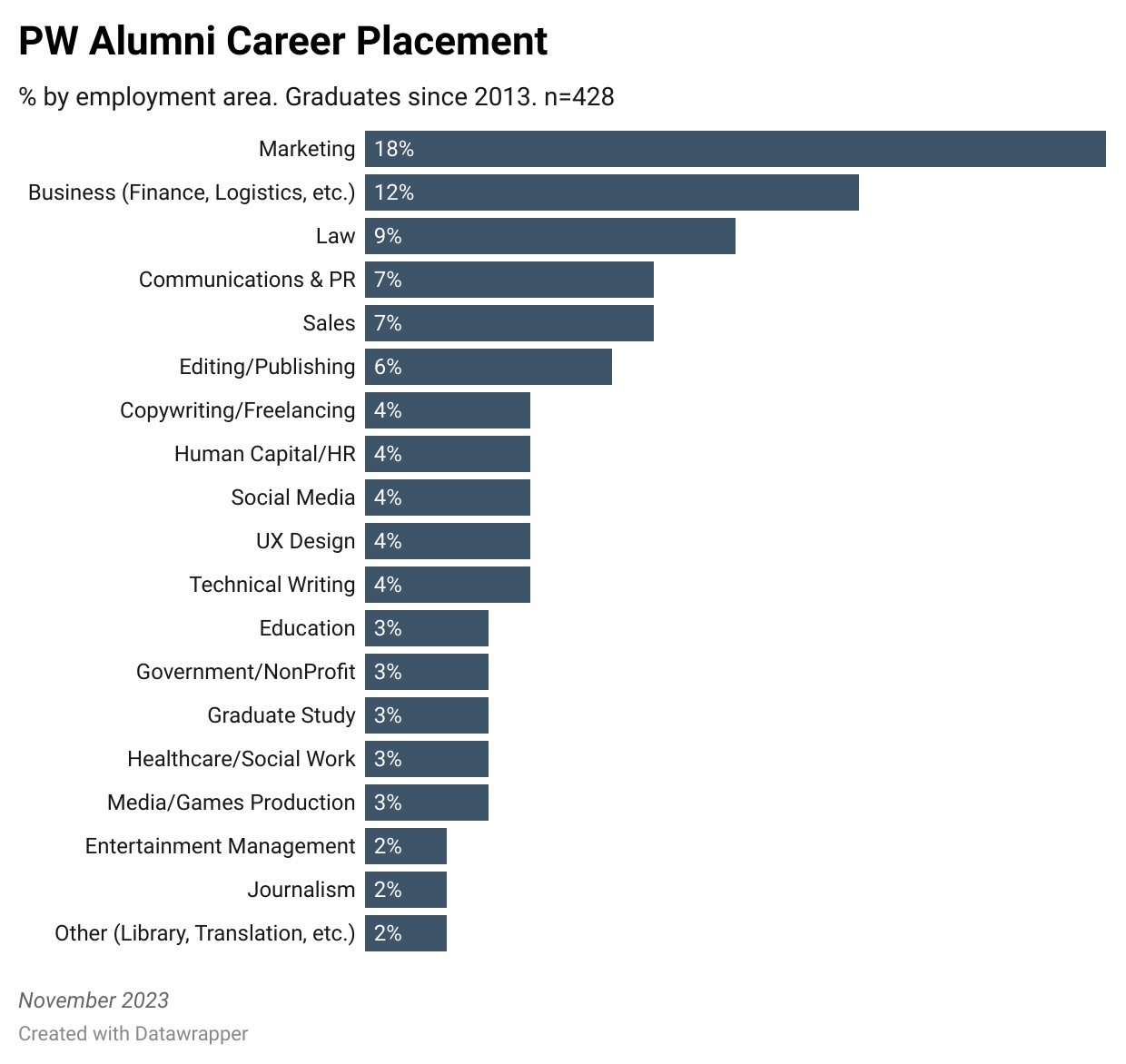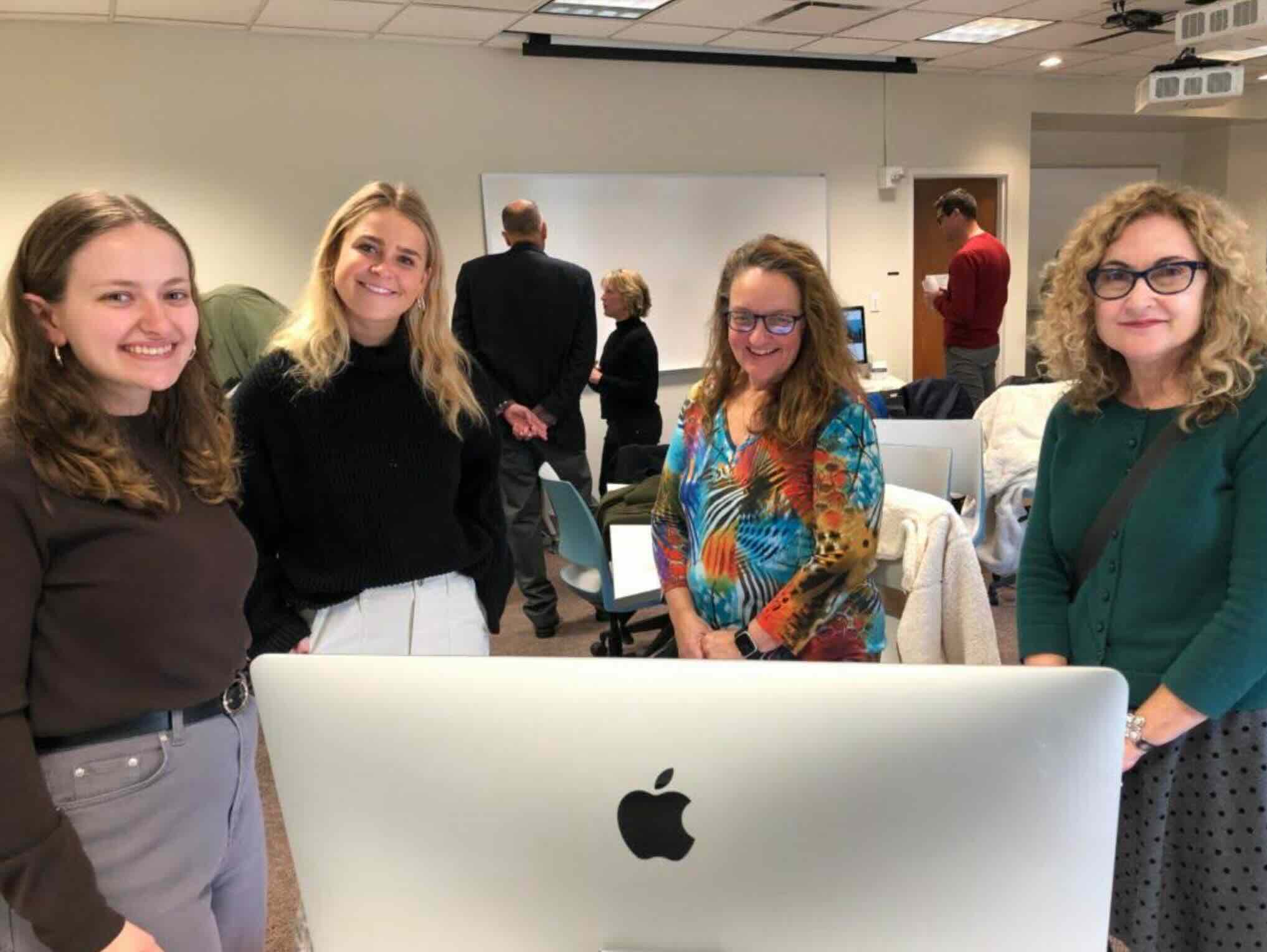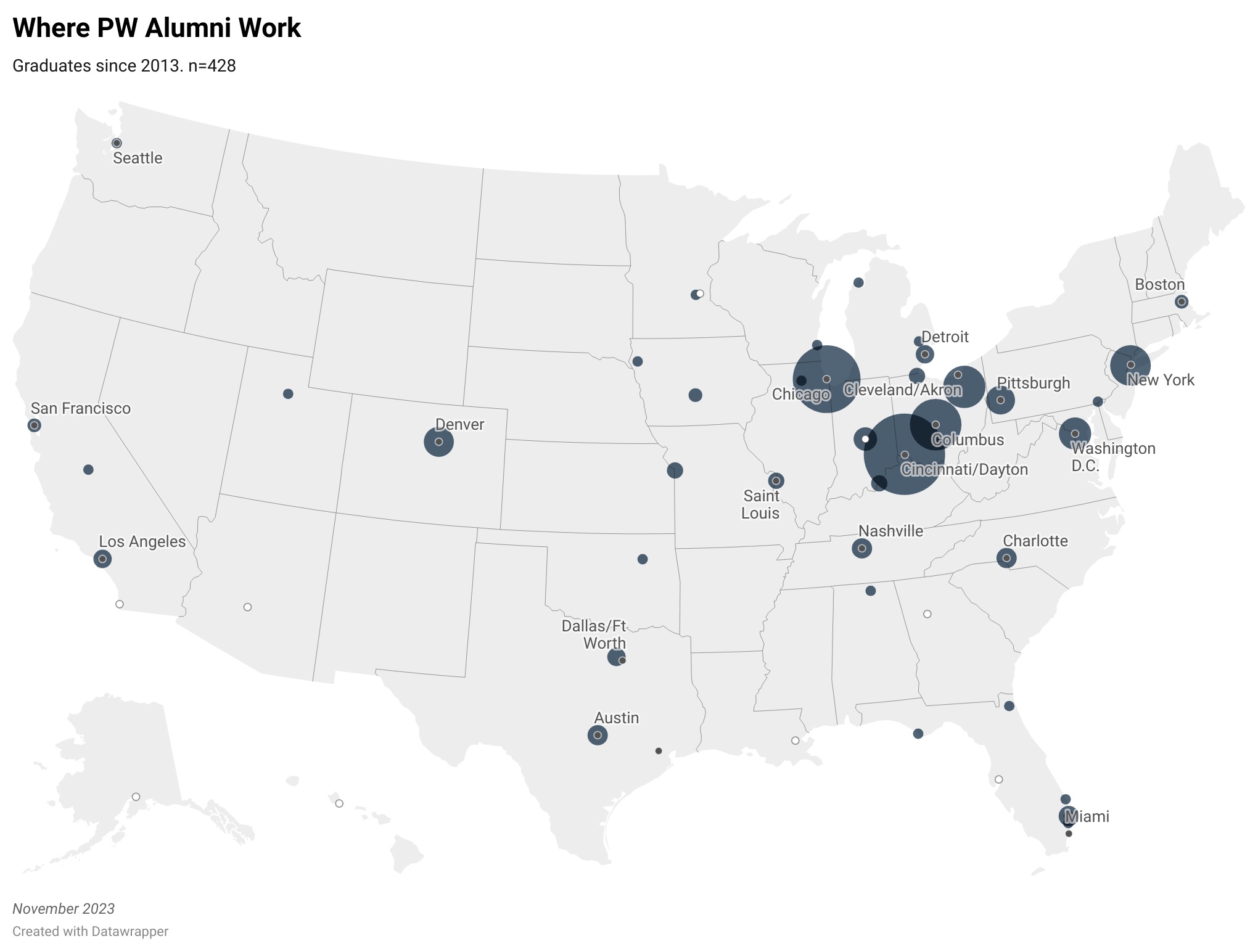As a Miami student you have access to excellent career resources. In addition to the faculty and staff in your programs of study, you have the Center for Career Exploration and Success, which offers many online resources and programs, workshops, career fairs and other events.
In addition, a few years ago we asked PW students about their internships and here are some profiles of their experiences and tips they have.
 Sai Allena ’19
Sai Allena ’19
Market Research Intern at Athene Consultancy (Singapore)
How did your Professional Writing major help you with your internship?
“It provided me with a communication framework to get my message across effectively. Since it was a market research internship, the requirements were all in report writing and researching.”
What did you learn from the internship?
“The inner workings of a firm, how to work better within a group. It allowed me to take what I’ve learned in class and apply it to a real-world setting.”
Advice for PW majors looking for internships
“Start early if you can, know your strengths and how to communicate them effectively, know your weaknesses and learn how to not see them as limitations rather they are a part of your individuality. Be sure to learn how to communicate about yourself in a reflective and respective manner, and always keep in mind who your audience is.”
 Sara Azalone ’19
Sara Azalone ’19
Congressional Progressive Caucus Intern (Washington D.C.)
How did your Professional Writing major help you with your internship?
“I wrote every day because I was in charge of writing a lot of reports for [the political consultant for whom I worked]. A major task was reading the 50 newspapers and writing a daily report. Here, it was vital to be concise yet explain a ton of information every morning, and I definitely exercised the PW major during that task every morning. If the report was too long, employees would probably be deterred to read it. Using rhetoric skills was key to spread information every morning.”
What did you learn from the internship?
“I learned how to use information for persuasive arguments, how to manage time, how to read things faster, and how to interact in a professional environment.”
Advice for PW majors looking for internships
“Some schools don’t have a PW major, so explaining [to potential employers] what the major is would be helpful. For example, in an interview I would exemplify how we fine-tune rhetoric and have honed analytical skills. It’s an impressive trait that can be used anywhere. On that note, I would encourage applying to a broader range of internships since PW is literally used everywhere. I thought at first that I would focus more on my Political Science major during this internship, but PW was used just as much.”
 Olivia Bauer ’19
Olivia Bauer ’19
Editorial Intern at American Technical Publishers (Chicago)
How did your Professional Writing major help you with your internship?
“I got the opportunity to draft memos and write parts for textbooks. It was a lot more writing than I think the company expected that I partake in, so having my writing skills was definitely attractive.”
What did you learn from the internship?
“I learned how to work independently and under a strict timeline. I also learned professionalism and what that entails in a work environment. Mostly though, attention to detail since that is the most crucial aspect to editing.”
Advice for PW majors looking for internships
“Go for it, even if you don’t think you’ll get it! Also, don’t be afraid to ask questions! It shows that you are engaged and interested. Be confident in yourself, you will do great things!”
 Abby Gooding ’19
Abby Gooding ’19
Development Intern at the Rose Kennedy Greenway Conservancy (Boston)
How did your Professional Writing major help you with your internship?
“As a development intern, I was mostly responsible for reaching out to potential donors and planning events. Each of my writing courses, like technical writing, report writing, and writing for media, helped me out a ton as I worked on each of my projects this summer.”
What did you learn from the internship?
“Honestly, I learned that having a wealth of experience allowed me to know what I do and don’t want to do.”
Advice for PW majors looking for internships
“Don’t be afraid to take an internship that seems like it doesn’t have anything to do with writing. Even if you think you won’t write, there is a good chance you will. No matter what position you have, the skills you learn in class will be directly impactful. And most importantly, try to get diversity each summer as best you can. Finding out what you don’t like is just as important as finding out what you do like.”
 Haley Jena, ’19
Haley Jena, ’19
Editorial Production Intern at Coveteur (New York City)
How did your Professional Writing major help you with your internship?
“I knew I had certain skills that I’ve gotten from courses from Professional Writing, so I was able to apply those in my internship projects. All of the copyediting courses I took really helped, as it was an editorial internship. And courses that focus on writing for different audiences and rhetoric were also really applicable as I was producing articles over the summer.”
What did you learn from the internship?
“It definitely confirmed my career interest in editorial writing. It was nice to see how the skills that we always learn in class are transferred to the real world.”
Advice for PW majors looking for internships
“Think about what skills you have and what skills they’re looking for, and use your skills to make you seem like the perfect match. Be sure to optimize your skills on your resume and your cover letter. One thing I did that helped a lot was have a few of my professors look over my cover letter and resume. It was great to get an outside perspective, and I think you should aim to get a lot of eyes on your content.”
 Jacob Nitzberg ’19
Jacob Nitzberg ’19
Sponsorship Activation Intern at FC Cincinnati, Major League Soccer (Cincinnati)
How did your Professional Writing major help you with your internship?
“It wasn’t specific to writing but so many others aspects of the major such as professional communication helped me throughout my internship.”
What did you learn from the internship?
“I learned valuable team work and networking skills.”
Advice for PW majors looking for internships
“You don’t necessarily have to obtain a writing internship. It’s okay to do something that is not within the realm of a typical internship for a PW major, because you can still learn lots of important skills and network regardless of your position”.




 Hueston Woods Nature Center
Hueston Woods Nature Center Historic Hopewell Church
Historic Hopewell Church Reily Township
Reily Township Enjoy Oxford
Enjoy Oxford Mary Jo Priest (’82) earned her B.A. with Miami University in Scientific and Technical Communication, now the Professional Writing degree. Upon graduation, she first worked for Industrial Data Technologies in Columbus, Ohio, where she wrote and designed technical information for internal and external company communications. After a few years, she chose to become a paralegal, a position where she continued to pursue her passion for writing until her death in 1995.
Mary Jo Priest (’82) earned her B.A. with Miami University in Scientific and Technical Communication, now the Professional Writing degree. Upon graduation, she first worked for Industrial Data Technologies in Columbus, Ohio, where she wrote and designed technical information for internal and external company communications. After a few years, she chose to become a paralegal, a position where she continued to pursue her passion for writing until her death in 1995. Sai Allena ’19
Sai Allena ’19 Sara Azalone ’19
Sara Azalone ’19 Olivia Bauer ’19
Olivia Bauer ’19 Abby Gooding ’19
Abby Gooding ’19 Haley Jena, ’19
Haley Jena, ’19 Jacob Nitzberg ’19
Jacob Nitzberg ’19
